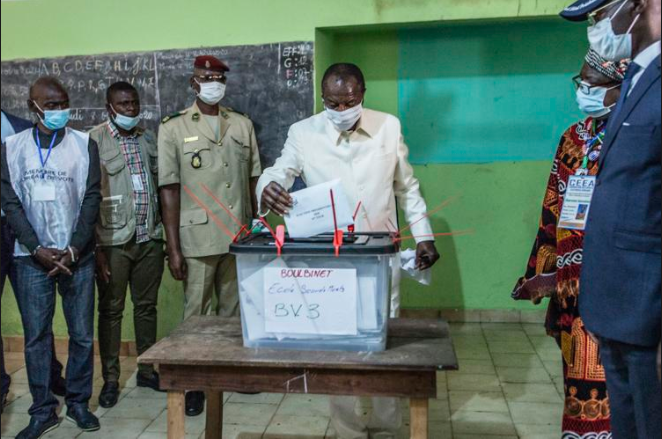Credit: Sadak Souici
By: Jonah Ruddock
For the third time, Alpha Condé and Cellou Dalein Diallo faced off at the polls for the Guinean presidency. The 82-year-old Alpha Condé won a much-disputed third term with 59% of the vote after elections on October 18th. There is a two-term limit, but a constitutional referendum last March increased the presidential term from five to six years and also reset the term count of the current president. This gives Condé the opportunity to remain in office for another twelve years, something that has led to violent protests spreading across the nation.
Diallo’s party has announced that they intend to accuse Condé of large-scale fraud, telling the press that, “We are still going to refer the matter to the constitutional court, without having too many expectations.” They have also urged their supporters “to mobilize to defend, by all legal means, the truth of the ballot boxes.” The population seemed to need little encouragement. Demonstrations all over the country have had to be suppressed by the police, with the help of the army. Some reports say that officers have been firing live bullets into crowds of protestors. As a result of the country’s frequent cuts to internet and mobile phone service, it is difficult to know how many people have died in these protests. Estimates range from nine to thirty. The situation is of growing international concern, especially because of the ethnic tensions between the two candidates, who draw support from the Malinke and the Peuhl, a historically tense matchup.
Alpha Condé was elected president in 2010, during Guinea’s first free election. He took control of a country that was scarred by nearly a century of French colonialism and decades of authoritarian rule under Sékou Touré and Lansana Conté. During his ten years in office, he has failed to alleviate poverty, despite the country’s valuable exports, such as bauxite, gold, and diamonds, and thriving trade with Russia and China. His promise to fight corruption has been seen as hypocritical, as he and his son have been implicated in multiple corruption scandals relating to the mining industry. Unemployment in Guinea is high, and at least fifty people have been killed in political violence in the past year. In 2000, he was accused of assassination attempts against then-President Lansana Conte and was incarcerated until 2001. Condé has done little to show that he has served the Guinean people, and many of them simply want him out of office. The talk of election fraud has done nothing to help his reputation as a power-hungry kleptocrat. Condé’s reelection could represent a return to authoritarianism for the country. The future is uncertain for Guinea, but it is certainly not looking bright at the moment.










